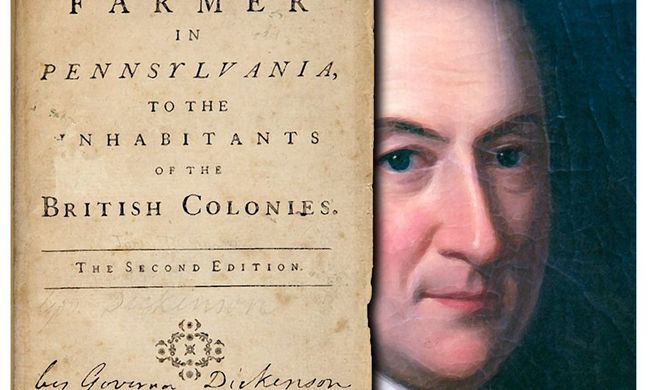This is the last of a five-part series on Founding Father John Dickinson, who published his highly influential “Farmer Letters” exactly 250 years ago. The series was first published by the Washington Post’s blog, The Volokh Conspiracy.
Ill-health motivated John Dickinson to leave the federal convention a day early. Before departing, he instructed his friend and Delaware colleague, George Read, to affix his signature to the document. There are, therefore, 39 signatures to the document but only 38 men physically signed.
In early 1788, Dickinson perceived that ratification momentum was slowing. Accordingly, he composed for publication nine letters written under the pseudonym, “Fabius.” The Letters of Fabius were well-received and widely reprinted.
Unlike The Federalist or the “Aristides” essays of Alexander Contee Hanson, Fabius made no attempt to provide a comprehensive overview of the Constitution. The letters focused primarily on answering the Antifederalist contention that the Constitution was too “high-toned,” and that its adoption would lead to aristocracy. If the reader reviews the Dickinson speech reported in my last post, he or she will see that Dickinson had anticipated this objection.
Fabius centered on a two-fold response. First, the rules governing the House, Senate, and president assured popular control. House members would be elected directly to short terms, and one third of Senators would be elected indirectly every two years. The president would be chosen by a method impervious to corruption; and although he enjoyed a veto, it was not absolute. The British had expanded and retained their liberties with far fewer democratic guarantees.
Second, freedom would be preserved by the confederal or federal (the words then were synonymous) nature of the system. In the original social compact, citizens donated certain rights or powers (words also then largely synonymous) to a central authority so as to protect retained rights/powers. Similarly, in a confederation, member states contributed rights/powers to a central authority so as to protect their remaining rights/powers.
But just as citizens are bound to be ever jealous of their rights and to check government accordingly, so also would the states be obligated to protect their reserved powers. “America is, and will be, divided into several sovereign states, each possessing every power proper for governing within its own limits for its own purposes, and also for acting as a member of the union.” Any states that allowed the federal government to interfere in their sovereign jurisdiction would be guilty of a breach of trust, for the “trustees or servants of the several states” were obliged to protect the authority citizens had placed in them. If state officials lose ground to the federal government, Dickinson maintained, “It will be their own faults.”
In addition to pressing his twofold argument, Dickinson made other points. One was the disadvantages of a confederation in which the central government had insufficient power. Dickinson cited both the Articles of Confederation and the fracture of two ancient Greek federations as examples. He also offered a positive case study: the 1707 union of England with Scotland. After reciting dire pre-union Scottish predictions his readers knew proved to be false, Dickinson identified the union’s benefits: the cultivation of virtues and correction of errors; protection for the lower classes; improvements in agriculture, science, arts, trade, and manufactures; the rule of law; peace and security at home, and increased respectability abroad. Amid the enjoyment of these benefits, the Scottish Church and laws, courts and judicature had remained established and secure.
A well-balanced confederation rendered all its members stronger. In modern terms, it reduced state shirking and free riding. Further, as in the human body, “A stroke, a touch upon any part, will be immediately felt by the whole.” A diseased member of the body severed from the rest could not recover, while one remaining connected could be saved.
Confederation was Dickinson’s answer to Montesquieu’s lament that a large territory cannot be governed by republican forms, and that attempting to do so resulted in fragmentation or tyranny. Confederation, said Dickinson, would ensure that government was effective throughout American territory while still checking the urge to centralize. No confederation had ever featured the protections contained in the Constitution. If they proved inadequate, the Constitution provided yet another response: a method for adopting “amendments on the authority of the people.”
* * * *
The author of Fabius was nearing the end of contemporaneous life expectancy, but in the event he was to live another two decades. During that time he maintained a large correspondence, including with Thomas Jefferson, who even as president always answered his letters.
In 1791-92, Dickinson served as president of the Delaware state constitutional convention, and briefly as a state senator thereafter. He wrote several articles and pamphlets, including new Fabius letters arguing for a pro-French foreign policy.
Most of his remaining life, however, was spent in retirement. He died in 1808, age 75.








